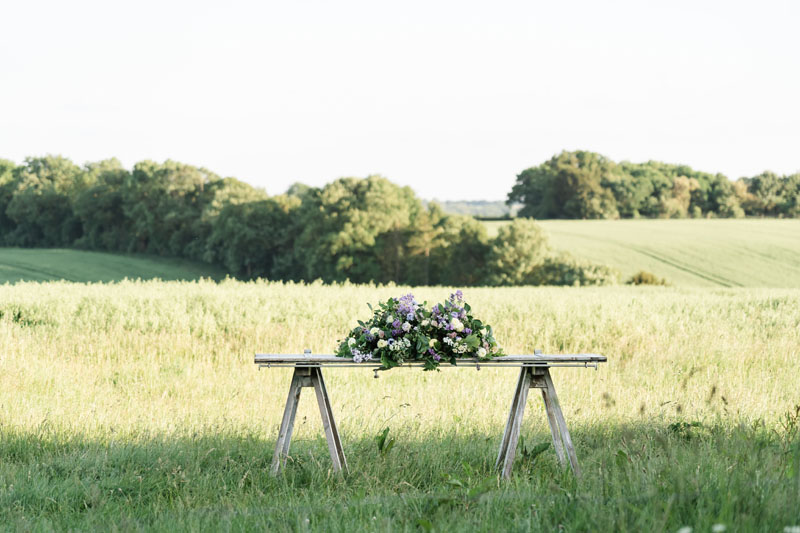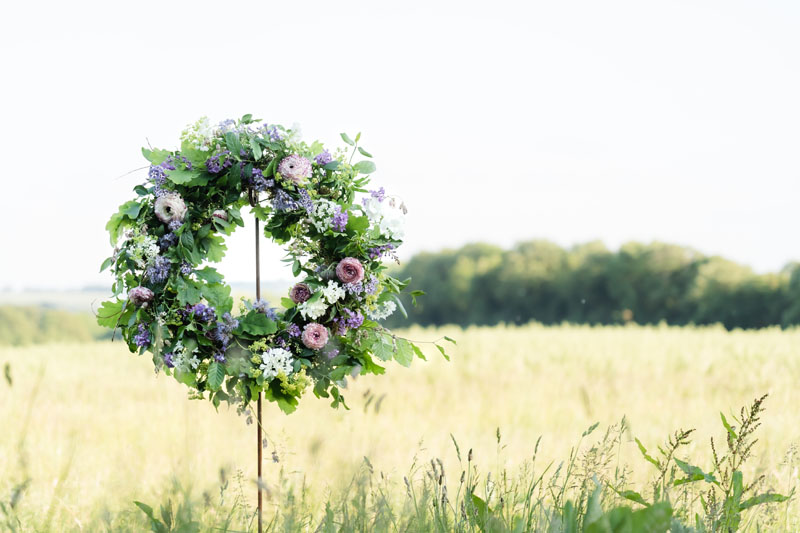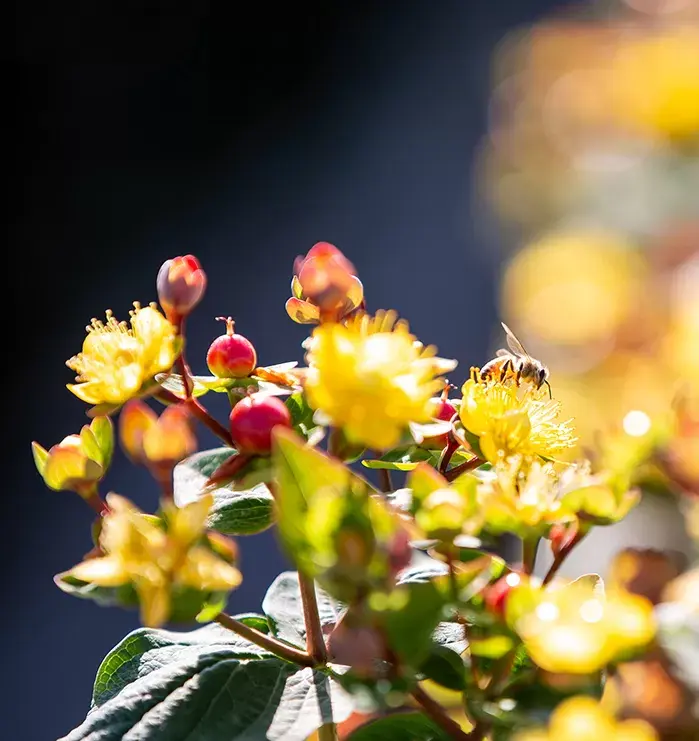The Farewell Flowers Directory
- Jonathon Downes

- Jun 10, 2024
- 5 min read
Updated: Aug 19, 2024
The UK florists on a mission to eliminate plastic floral foam from funeral flowers

Launched in May 2024, The Farewell Flowers Directory is the first online listing service to connect people to independent funeral florists offering natural, beautiful and compostable floral arrangements across the UK.
Presented as a positive, practical response to the huge issue of plastic waste in funeral floristry, The Farewell Flowers Directory is on a mission to change the world of funeral flowers one compostable arrangement at a time. By demonstrating just how beautiful naturally designed funeral flowers can be without the use of floral foam or single use plastic, The Farewell Flowers Directory aims to change perceptions of funeral floristry and get the plastic out of funeral flowers for good.
As the coffin of Queen Elizabeth II was carried into Westminster Abbey in September 2022, millions were struck by the gentle beauty of the floral wreath decorating it. Not only were the flowers seasonal, colourful and handpicked from the gardens of the royal estates to convey personal and symbolic meaning, but the wreath had been made in a sustainable way without the use of floral foam or single use plastic. It was a landmark moment for the floristry industry.
Floral foam has become a significant environmental issue. It is estimated that every year over 14,670m3 of floral foam and single use plastic are sent to landfill from crematoriums across the UK. That’s the equivalent of more than 6 Olympic swimming pools. Floral foam is an environmentally harmful form of plastic first invented in the 1950s as a quick way to secure flowers in flower arrangements and it was widely adopted by the floristry industry. The environmental cost has only been understood in the last decade or so. Floral foam is a single-use plastic and cannot be recycled. It will never biodegrade but breaks down into microplastics which can contaminate the soil and watercourses
The Institute of Crematorium and Cemetery Management is amongst the industry bodies to have spoken out publicly. Julie Dunk, Chief Executive of the ICCM said:
“We recognise that floral tributes can be an important part of a funeral and beautiful displays can bring great comfort to bereaved families. However, as with everything in life, we need to consider our environmental impact and make choices where possible to minimise this impact. Once the flowers have wilted, cemeteries and crematoria are left with the plastics which can become litter, and which our members have no option but to skip and send to landfill. Reducing the amount of plastic in the form of floral foam and bases for displays, as well as wrappings such as cellophane, will have a positive impact on not only the environment but also on the costs of dealing with these non-biodegradable materials. It is great that there is now a real choice through the Farewell Flowers Directory and people can choose floral displays that reflect their wishes whilst protecting the environment. The ICCM welcomes this excellent initiative and would encourage anyone looking for local florists to help them create a meaningful floral tribute to use the Directory.”
The Farewell Flowers Directory is the brainchild of Gill Hodgson of Fieldhouse Flowers in Yorkshire and founder of Flowers from the Farm and of florist and funeral floristry tutor, Carole Patilla of Tuckshop Flowers in Birmingham. Shocked by the levels of waste single-use plastics and floral foam cleared every year from UK cemeteries, they have set about making positive change happen.
Every florist listed in The Farewell Flowers Directory and wanting to be part of the change commits to offering the option of fully compostable funeral flowers, incorporating an element of British-grown material into their designs, being transparent about the provenance of their cut material and showcasing their compostable designs on a dedicated funeral flowers page on their website.
Gill Hodgson explained the motivation behind the Directory:
“An unsustainable circle has evolved in funeral flowers over recent decades, and it’s going to take the combined efforts of funeral directors, florists and consumers to break it. Funeral Directors are focused on providing a caring, dignified service to the bereaved. Most will present a set menu of foam-based floral tributes to their clients and florists find themselves obliged to recreate those designs, even though they may personally prefer to work in a more environmentally sustainable way. Cemeteries, churchyards and crematoria are left to deal with a mountain of plastic floral foam and single use plastic. Mourners at their services assume the rigid foam-based arrangements on the coffins of the deceased are the only option, and so they select the same thing when they are bereaved and so the cycle rolls on.
Gill Hodgson continued:
“In founding The Farewell Flowers Directory, we aim to break the chain. We want to make people aware of the many talented florists creating fully compostable, plastic-free floral designs and inspire more florists to make the switch. This year will see funeral flowers beautifully displayed and discussed in the media and the public will see them first hand at regional shows and events. We want to demonstrate just how beautiful, personal and sustainable funeral flowers can be.”
The good news is that compostable alternatives to floral foam already exist and they allow for softer, more personal, unique designs. Florists have a range of techniques at their disposal from creating moss and twig bases to designing arrangements of flowers or plants, which can be divided after the funeral and shared with family and friends to take home.
There are plenty of tools and courses on sustainable funeral floristry available to support florists looking to make the change including a bestselling book on the subject, ‘A Guide to Floral Mechanics’ by Sarah Diligent and Wiilliam Mazuch; the British Florist Association’s dedicated sustainability education programme to try to inform its members; and resources shared by the global campaigning group ‘The Sustainable Floristry Network’.
Carole Patilla understands both the power that well-designed flowers can have and the need for a more sustainable approach. Carole explained: “A family came to me saying that they wanted something for their husband/dad but he wasn't really a flowery person. Veg was more his thing as a gardener. Initially they were keen to have a vegetable based arrangement, but when they went over to my website, they saw some hiking boots I'd arranged previously and fell in love with them and switched from veggies entirely.
He'd loved walking and the countryside, and they asked me to include heather in them as a nod to moorland hikes. I made them as wild-looking and unflowery as I could, whilst still making them lovely. They asked me to include red roses as he'd worn a red rose buttonhole at his wedding. They supplied the boots, and I placed jam jars with water inside each boot and filled them with flowers. The design was meaningful, simple, seasonal, beautiful and free of plastic waste.”
Images provided by Carole Patilla of Tuckshop Flowers, Suzanne Randell Floral Designs, The Shropshire Flower Company, Severn Valley Flowers, Hook Heath Flowers, North and Flower, Petal and Twig, Woodchurch Cottage, Old Bakery Flower, The Ledbury Flower, Featherstones English Flower Company









































